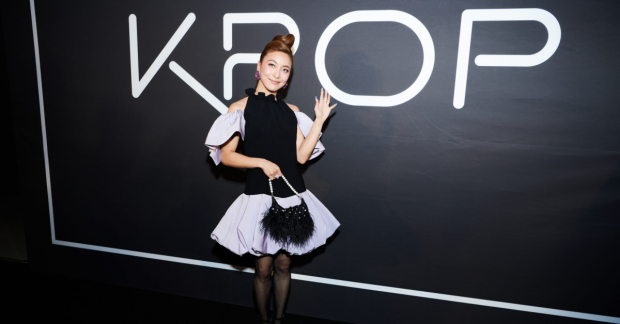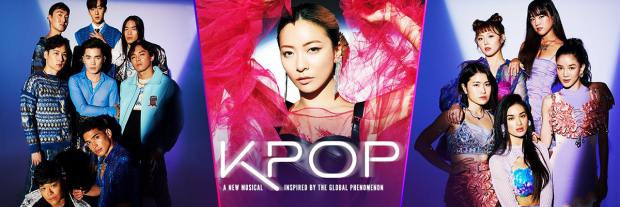New to K-Pop? Here's What You Need to Know Before You See KPOP on Broadway.
Check out our tips for getting the most out of your trip to see the show at Circle in the Square Theatre.
Korean Pop and its stars, most often referred to as "idols," have been taking the world by storm for the last few years, but many Broadway audiences might not be familiar with the unique and distinct facets of the K-pop industry before they see the new musical about it at the Circle in the Square Theatre.
To get you ready for KPOP on Broadway, we put together a list of fun insider facts to help you enjoy a music genre that may be mostly new to you.

(© Jenny Anderson)
Random English? You bet!
Most K-pop songs use English throughout. This is to make the song catchier and to seem cooler, as English is a culturally popular language. In older songs, the English may not have been the most… grammatically accurate, but this has improved as K-pop has become more global. Many more K-pop idols have begun to learn English as part of their K-pop training, and a lot of groups have fluent members. K-pop artists are now releasing songs fully in English.
K-pop Idols can train for years and never debut.
Rigorous training can start early and last years. Some idols are discovered at auditions, but some are scouted at young ages based on looks and talents. They're then put into lessons for everything from singing, dance, languages, and more. Often, the idols owe the company this money back, so it might take years before they are seeing any money from their efforts, if at all, even if they appear massively successful on the charts. Some idols train for over a decade, and some debut after short periods of time. It all depends on whether the company thinks they are ready to debut, and if that person fits into the particular style of group that the company wants to put out. Roles in K-pop groups are very specific; for example, the leader and the rapper of the group are determined by the company. Even after a debut, companies can decide to add new members, and a solo debut announcement always leaves fans wondering if that idol is planning on leaving the group.
Korea has a very hierarchal culture – age is incredibly important.
One of the first questions many Koreans will ask is, "How old are you?" and it often surprises Westerners. They're not trying to be rude; they're trying to establish the level of respect needed when conversing or interacting with you. The Korean language has different levels of respect built into their conjugations, so they need to know what level of respect to use when speaking to each other. While people of the same age can speak casually, it must be discussed first. It is incredibly rude to speak informally to someone older than you, and there is an even higher level of respectful language for elders and high-level officials and employees.
This ranked communication extends to gestures and duties as well – a deeper bow signifies deeper level of respect, and the youngest of the group is often given the tasks others don't want.
It can get even more confusing when working with someone who is younger than you, but who started the job before you – they're your senior at work, and you must speak to them respectfully. To avoid any confusion, people always speak respectfully until the older/more senior person asks if one wants to drop the honorifics. Dropping the honorifics without permission is one of the highest levels of disrespect in the culture.
All that is to say, a new member of the group F8 trying to change things up would understandably irk most of the Korean members, even more than the musical portrays.
Korean idols are "married to the fans."
In the West, particularly in America, we love celebrity couples, often creating couple names out of a combination of the stars' names. In Korea, the announcement of a new celebrity couple is most often a dating scandal, especially when it involves one or more K-pop stars. There is a perception that the idols' lives belong to the fans even when they aren't actively performing, and dating would take their focus away from the group and music. Some members of groups have announced marriages to the dismay and disappointment of many fans. Though the attitudes may change slowly, calls for married members of groups to leave because they've disrespected the fans have been known to happen.
Oppa/Unni/Hyung/Noona
In Korean, there are specific words for older sibling. If you're a girl, your older brother is Oppa and your older sister is Unni. If you're a boy your older brother is Hyung and your older sister is Noona. But this doesn't just apply to siblings – they are also used as terms of endearment in a relationship to indicate not only a friend you consider very close, but also a significant other! For instance, a girl with an older boyfriend will often refer to him as Oppa!
To longtime K-pop fans, many of these facts are old news. But as K-pop is still relatively new to the scene in the United States, and especially on Broadway, we hope this list might help you out as you dance in your seat at Circle in the Square!

(image via @KPOPBroadway)









